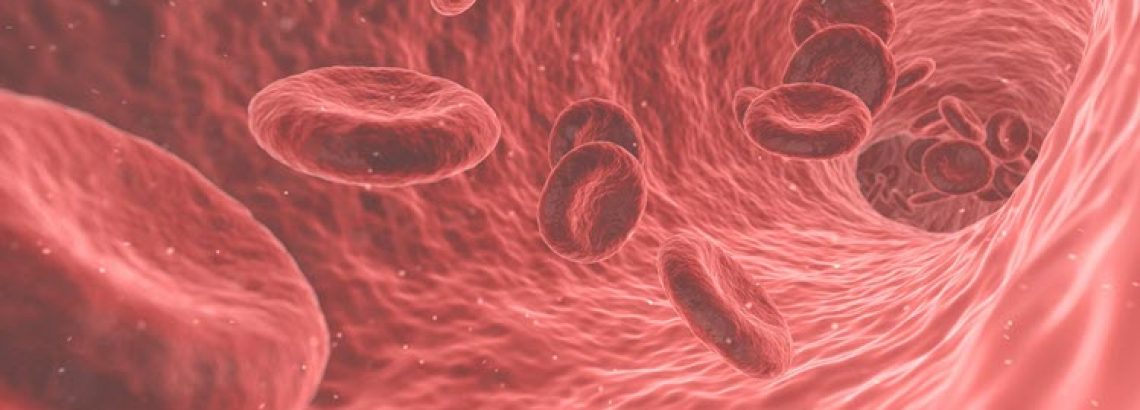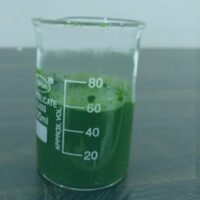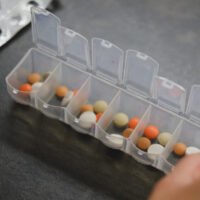Last updated on December 30th, 2022
Could it be possible that a simple ancient blue-green alga is the answer to all our anemia related problems?
Anemia, an insufficient capacity of the body to carry oxygen, is currently the worst global public health scourge, believed to be caused by a micro-nutrient deficiency.
Iron deficiency is the most common source of Anemia, caused either from blood loss with hookworm infestation or menstrual loss, combined with poor nutrition, which results in failure to compensate for the blood loss.
Anemia’s devastating effects include premature births, low birth weight, postpartum hemorrhages, and other maternal complications, stunting and growth-retardation among young children.
All this feeds into a vicious inter-generational cycle and poor health outcomes affecting adolescent girls to mothers, particularly young mothers and their infant children. In this article, we are going to review some of the studies and recommendations regarding spirulina supplementation, to battle Anemia once and for all.
Public Health Response to Anemia
To date, the public health response has been to supplement elemental iron along with folic acid to pregnant and lactating women and children. However, data pertaining to India shows that, in spite of such supplementation, 50% of women and 70% of children under 5 years of age continue to be anemic.
The rates of anemia and its consequences have not changed significantly among women between the NFHS-3 (National Family Health Survey 2005)[i] and the NFHS-4 (2015)[ii] even though the provision of iron and folic acid coverage is reportedly more than adequate.
Arguably, in the context of the provision of adequate coverage of iron and folic acid in a large unwieldy public health program, the fault could lie with its governance, implementation, etc. So it becomes necessary to look at clinical trial settings where procedures and protocols have been conducted under systematic conditions. To date, more than 44 such randomized clinical trials among 3000 women have been conducted globally.

Research Conclusions on the Benefits of Spirulina for Anemia
Two meta-analyses through Cochrane Reviews[iii], show the following:
- The iron and folic acid supplementation definitely leads to an increase in the hemoglobin levels and thus to the alleviation of anemia
- Pre-eclampsia, low-birth weight, premature birth, and postpartum mortality rates were not improved by merely administrating elemental iron.
- The iron and folic acid tablets caused gastrointestinal side-effects such as constipation, diarrhea, and vomiting which lead to a lack of compliance with the supplementation regimen.
- There is minimal data on the average increase in birth weight, and this forms the basis for the current WHO recommendation in public health regulations for iron and folic acid supplementation.
Accordingly, the authors of the two Cochrane reviews strongly recommended the identification of an alternative source of iron as opposed to the currently-recommended elemental iron in view of its adverse effects and lack of efficacy vis-a-vis the main outcome measures.
It is in this scenario that supplementation of spirulina as a potent alternative source of iron and folic acid assumes stupendous significance.
Learn more about the powerful micronutrients in spirulina!
Spirulina as a Source of Iron and Folic Acid
Comparatively, spirulina has an astonishing content of iron and folic acid – approximately 100 times the RDA requirement! Moreover, it is readily digestible and bio-available. History tells us that it was the food of the ancient Aztecs and NASA hails it as the food of the future.
The Cochrane reviews clearly state that it is imperative to administer iron in a form which is both absorb-able and bio-available as this would not only correct the anemia but also preempt the negative outcomes associated with anemia[iv].
How Spirulina can Treat Different Types of Anemia
There are several published and unpublished data, which show that anemia can be ameliorated among women and children of various ages.
Childhood Anemia
A randomized controlled study of anemic girls between 7-9 years of age, by Sachdeva and colleagues, showed a significant increase in hemoglobin and intellectual levels with just five weeks of 1 gram of Spirulina powder ingestion, with a correlation between the hemoglobin and IQ levels.[v]
Similar increase in IQ and hemoglobin levels with Spirulina have been shown in 2001 by Kauser et. al.,[vi] More recently, in our non-randomized study of 1000 children given 2 doses (1 and 2 grams) of Spirulina, versus, control groups, we saw an increase in hemoglobin levels along with IQ levels[vii].
We have found an improvement of up to an average of 1.5-3 grams of hemoglobin levels in around 100 children at a Mutt in Tumkur Karnataka, who were given 1-2 grams of Spirulina.
As part of the mission, in a non-randomized study, out of 1000 children, those given Spirulina were seen to have significantly higher iron and hemoglobin levels as compared to controls.vii
Maternal Anemia and Pregnancy Anemia
Also documented is an Improvement of hemoglobin levels with just 10 grams of Spirulina for six months along with iron, folic acid and vitamin B12, as compared to control groups among difficult to reach tribal women in the Northeastern states of India[viii].
Furthermore, in our work in Bellary Karnataka, where we launched a “mission against malnutrition” we gave 1-2 grams of Spirulina to more than 45,000 pregnant women, lactating mothers and children under 6 years. The dramatic results of this study showed a significant reduction in malnutrition and anemia in the cohort measured[ix].

Since it is an accepted fact that like intra-uterine growth retardation and stunting commences in the mother’s womb, we recommend dietary supplementation by Spirulina to tackle the antecedent problems of anemia and poor gut microbiome. Amazingly, just 1-2 grams spirulina per day for 3-6 months will suffice to impact the twin problems of anemia and stunting due to intrauterine under-nutrition, thus killing two birds with one stone. Serendipitously with Spirulina we have the solution to the nagging impediment to the human health potential of India.
Spirulina and the Gut Microbiome
Studies made on animals have shown that Spirulina enhances the gut microbiome, an essential bacteria, and microbes which reside in the gut and are responsible for body processes. With positive effects ranging from mood to immunity, Spirulina has shown to diversify the gut microbiome, making the body more resistant to disease and conditional factors. [x][xi]
Meanwhile, emerging data on gut microbiome studies show that iron micronutrient deficiency is perhaps indicative of a poor, unhealthy, less diverse microbiome[xii]. On the other hand mice studies show that merely replenishing iron could be counter-productive; for administering iron to an already impoverished gut microbiome has been known to have a deleterious effect on it[xiii].
This agrees with the finding now commonly accepted that elemental iron supplements should not be given in the initial 4-7 days of acute malnutrition management because of increased risk of mortality. However, the public health policy in India does not take the gut microbiome data into account.
Empowering Indian Women through Spirulina Cultivation
Incidentally, the widespread cultivation and consumption of Spirulina would significantly address the Millennium Development Goals (MDG) formulated by the UN. For instance, local women Self Help Groups (SHGs) can cultivate and harvest Spirulina. This would promote sustainable living, women empowerment, reduction in undernutrition and food security globally, nationally and locally. What is more, the cultivation of Spirulina will help mitigate the fallout of climate change because it is a powerful carbon sink.
Thus the simple blue-green algae multi-purpose panacea for many ills plaguing our planet, and help towards removing the root causes in inequity in sustainable development integrating economic, social and environmental dimensions.
Acknowledgments
- Mahesh RV, BE, Founder President, Spirulina Foundation
- Mission Against Malnutrition Team at JSW Foundation
- Jeyu Govindan, BA
- Ditsa Keren, Grow Organic Spirulina
References
[i] http://rchiips.org/NFHS/nfhs3.shtml
[ii] http://rchiips.org/NFHS/factsheet_NFHS-4.shtm
[iii] Effects and safety of preventive oral iron or iron+folic acid supplementation for women during pregnancy (Review) iv Peña-Rosas JP, Viteri FE
[v] Effect of Supplementation of Spirulina on the Haematological Profile and Intellectual Status of School Girls (7-9 years) Rajbir Sachdeva, Ravinder Kaur, and Jasvinder Kaur Sangha. J. Hum. Ecol., 15(2): 105-108 (2004)
[vi] Kauser, F. and Parveen, S.: Effect of Spirulina as a nutritional supplement on malnourished children. Ind. J. Nutr. Dietet., 38: 269-73 (2001)
[vii] [vii] Rajachar V, Gupta MK, Sengupta A. An Intervention Study for “Mission Against Malnutrition” in Bellary District, Karnataka. IPHA 2016: Towards Healthy Lifestyle. Organized by Himalayan Institute of Medical Sciences, Dehradun, Uttarakhand 4th to 6th March 2016.
[viii] Incidence of anemia and effect of nutritional supplementation on women in rural and tribal populations of eastern and North-eastern India
Madhusnata De1, Ajanta Halder1, Tulika Chakraborty1, Urmisha Das1, Sonali Paul1, Auley De1, Jayashree Banerjee1, Tapabrata Chatterjee2, Soumya De3
Hematology 2011 VOL. 16 NO. 3 DOI 10.1179/102453311X12953015767455
[ix] Drop in malnutrition cases among women, children in Sandur taluk, The Hindu on April 7, 2015, 07:50 IST
[x] International Journal of Recent Scientific Research Research Vol. 6, Issue, 2, pp.2650-2653, February 2015. Research article dietary administration 0f spirulina platensis as probiotics on growth performance and histopathology in broiler chicks. b. Shanmugapriya1, S. Saravana Babu2, T.Hariharan3, S. Sivaneswaran, and M.B.Anusha4
[xi] Probiotic Efficiency of Spirulina platensis – Stimulating Growth of Lactic Acid Bacteria
[xii] Oral iron acutely elevates bacterial growth in human serum.
James H. Cross1, Richard S. Bradbury1,2, Anthony J. Fulford1,3, Amadou T. Jallow1, Rita Wegmüller1, Andrew M. Prentice1,3 & Carla Cerami4
[xiii] Gut. 2015 May;64(5):731-42. doi: 10.1136/gutjnl-2014-307720. Epub 2014 Aug 20.
Iron fortification adversely affects the gut microbiome, increases pathogen abundance and induces intestinal inflammation in Kenyan infants.
Jaeggi T1, Kortman GA2, Moretti D1, Chassard C1, Holding P3, Dostal A1, Boekhorst J4, Timmerman HM4, Swinkels DW2, Tjalsma H2, Njenga J5, Mwangi A5,Kvalsvig J6, Lacroix C1, Zimmermann MB





